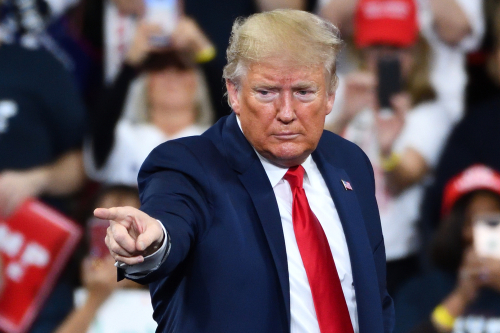
In a recent Congressional hearing, Treasury Secretary Janet Yellen found herself at the center of a heated debate. Lawmakers grilled her on the controversial decision by her department to instruct financial institutions to monitor the bank transactions of Americans. This directive has raised significant concerns about privacy and government overreach.
The scrutiny intensified when it was revealed that specific terms such as ‘MAGA’ and ‘Trump’ were suggested to be monitored in Zelle payments. This revelation has sparked outrage among citizens and lawmakers alike, who view this as a politically motivated invasion of privacy. The Treasury’s actions have been perceived as targeting individuals based on their political affiliations, which is a dangerous precedent in a free society.
Sen. Kennedy absolutely shreds Tresusry Secretary Janet Yellen.
Yellen said that prices aren’t going down but that’s OK because wages are going up.
Kennedy rebutted that wages are not going up nearly as fast as prices.
Yellen is not right in the head.pic.twitter.com/F8utce15NY
— Paul A. Szypula 🇺🇸 (@Bubblebathgirl) February 8, 2024
Moreover, Yellen was questioned about the Treasury’s decision to unfreeze $6 billion in funds to Iran, a nation known for its hostility towards the United States and its backing of proxies that have attacked U.S. troops. Despite assurances that the funds were intended for humanitarian purposes, many remain skeptical about the true end-use of these resources, given Iran’s track record.
The hearing also shed light on other alarming indicators that the Treasury advised banks to watch for, including purchases from stores like Bass Pro Shops and Cabela’s. The inclusion of such everyday consumer behavior as potential signs of ‘extremism’ has many Americans worried about being unjustly scrutinized or even targeted by their own government.
Treasury Secretary Silent on Surveillance of Americans' Purchases#TruNews #RickWiles #JanetYellen #Treason #TribeJ #Orwellian
Find out more: https://t.co/YcKKmRzY7U pic.twitter.com/GR60jRmaJg
— TruNews™ (@TruNews) February 9, 2024
The Treasury’s guidance to banks went further, suggesting that activities such as purchasing a bus or plane ticket without an apparent purpose or subscribing to news outlets with ‘extremist’ views could warrant surveillance. These broad and vaguely defined criteria have only added to the growing concern that innocent citizens could be caught up in a dragnet simply for exercising their freedoms.
Secretary Yellen’s responses during the hearing did little to assuage fears, as she dodged multiple questions regarding the rationale behind these surveillance measures. The lack of transparency and accountability in her answers has only fueled more distrust and speculation about the true intentions behind the Treasury’s directives.
This incident raises fundamental questions about the balance between national security and individual liberties. While the protection of the country is paramount, it should not come at the cost of eroding the constitutional rights that form the bedrock of American democracy. The government’s role should be to safeguard its citizens, not to create an atmosphere of suspicion and surveillance that encroaches on personal freedoms.
As the debate continues, it is clear that the Treasury Department’s actions have struck a nerve with the American public. The issue at hand is not just about financial transactions; it’s about the core values of privacy and liberty that define the United States. It is imperative that a thorough investigation is conducted to ensure that the government’s actions are justified and that the rights of American citizens are not being compromised under the guise of security.










